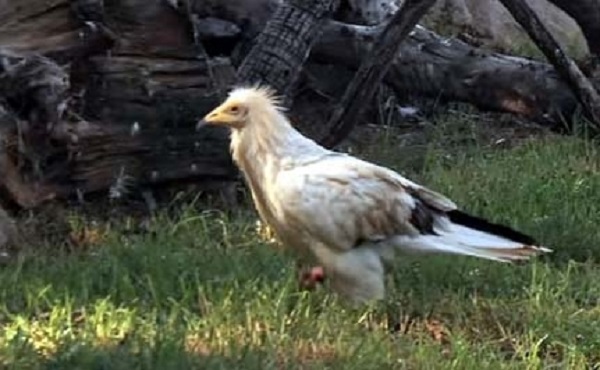New Delhi, (Asian independent) An Egyptian vulture, found in a critical state in Delhi, was rescued by Wildlife SOS Rapid Response unit and is currently under medical observation.
Police officials at the police station in Kalyanpuri area of east Delhi had spotted the injured vulture, hanging from a tree, with a critically injured left wing, on Tuesday and immediately contacted the Wildlife SOS team on their 24-hour rescue helpline.
Identified as a rare Egyptian vulture in its juvenile stages, the bird was carefully transferred into a transportation carrier and rushed to a recovery facility, where it continues to be under medical observation.
“It is suspected that the bird had fallen victim to the deadly Manja, a glass-coated string used to fly kites,” Wildlife SOS said in a release on Wednesday.
Wasim Akram, Deputy Director-Special Projects for Wildlife SOS, said, juvenile Egyptian vultures take small flights, often stopping for rest in safe areas devoid of predators. This particular vulture was unable to take flight as it injured its wing, most probably due to being caught in manja. “Our team has placed the vulture under mandated medical observation to ensure it recuperates safely.”
Kartick Satyanarayan, CEO & Co-founder of Wildlife SOS, said: “Manja, the nylon string coated in glass commonly used for kite flying, can be lethal for birds as they can get entangled in them and suffer dire injuries. These strings are so sharp that they can cut through the flesh and bone of a bird. The Wildlife SOS team has rescued numerous birds caught in manja. Our Rapid Response Unit and our veterinary team are thoroughly trained to ensure that such cases are handled with the utmost caution.”
Earlier this month, Wildlife SOS rescued another Egyptian vulture that was found in a semi-conscious state outside a house in Sector-26, Noida.
The Egyptian vulture is an old-world vulture widely distributed in India, the Iberian Peninsula, and North Africa. These majestic birds are useful scavengers and play an integral role in the ecosystem by feeding on carrion and disposing carcasses of dead animals thereby preventing the spread of infectious diseases.
Despite their importance, the Egyptian vulture population is slowly declining due to various anthropogenic pressures such as habitat loss, and is listed as an endangered species on the International Union for Conservation of Nature (IUCN) Red List.








